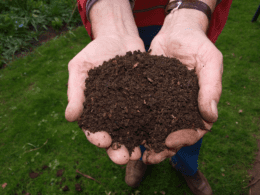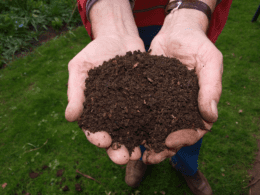Do you love spending time in your backyard but find the constant traffic noise to be a nuisance? The sound of cars zooming by can be distracting and overwhelming, making it difficult to relax and enjoy your outdoor space.
Luckily, there are ways to reduce the amount of noise pollution in your backyard and create a peaceful environment. In this article, we will explore techniques for silencing traffic noise, including sound deflection and sound attenuation.
We’ll also discuss effective barriers that can be used to block out unwanted noise and other considerations to keep in mind. With these tips, you can transform your backyard into a tranquil oasis where you can unwind and enjoy the beauty of nature without the constant interruption of traffic noise.
Quick Takeaways
- Two main techniques for reducing traffic noise in the backyard: sound deflection and sound attenuation.
- Effective barriers include brick walls, acoustic fencing, and vegetation barriers, while wooden fences and metallic panels are less effective.
- Barrier considerations include height, density, coverage, and placement, with a minimum height of 2 meters and a completely solid structure going all the way down to the ground.
- Water features and tall, dense structures can also be used as effective barriers, and careful consideration is needed to choose the best option for garden layout and budget.
Can I Compost Bones to Reduce Noise in My Backyard?
If you’re looking for effective composting bones tips and tricks, it’s best to avoid including them in your backyard compost. Bones take a long time to break down and can attract pests. Instead, consider composting other organic materials like fruit and vegetable scraps, coffee grounds, and yard waste to reduce noise and create nutrient-rich soil for your garden.
Sound Deflection Techniques
You can reduce traffic noise in your backyard by using sound deflection techniques. This means placing physical barriers that reflect sound waves away from your space. Some effective options include brick walls, acoustic fencing, and vegetation barriers.
For a more natural look, you can use plants as barriers. Trees and shrubs absorb and disperse sound waves, providing effective coverage. Another option is installing a water feature, such as a fountain or pond. The pleasant sound of flowing water can help drown out the noise from traffic.
Consider incorporating these elements into your backyard design to create a peaceful oasis.
Sound Attenuation Methods
Consider using sound attenuation methods, such as absorbing sound waves with barrier materials, to reduce noise pollution in your outdoor space. Sound absorption materials can be used to line the inside of a barrier or fence, or even placed strategically around the yard to reduce noise levels. Common sound absorption materials include fiberglass, foam panels, and mass-loaded vinyl.
If you’re looking for a more cost-effective solution, DIY soundproofing can be done with materials like egg cartons or blankets. While not as effective as professional soundproofing materials, these options can still make a noticeable difference in reducing noise levels. Keep in mind that the effectiveness of sound attenuation depends on the density and coverage of the material, as well as its placement in the yard. Consider consulting with a professional or doing research to determine the best sound attenuation method for your specific needs.
| Sound Absorption Materials | Pros | Cons |
|---|---|---|
| Fiberglass insulation | High absorption capability | Needs to be covered to avoid irritation |
| Foam panels | Easy to install | Can degrade over time |
| Mass-loaded vinyl | High density for maximum sound absorption | Can be heavy and difficult to install |
| Egg cartons | Cost-effective | Not as effective as professional materials |
| Blankets | Cost-effective and easy to install | Limited effectiveness |
Choosing Effective Barriers
To effectively reduce traffic noise in your backyard, choosing the right barrier is crucial. Tall and dense barriers are the most effective, such as brick walls, acoustic fencing, and vegetation barriers.
Here are some things to consider when choosing a barrier:
- Barrier height should be at least 2 meters to effectively block out sound waves.
- Denser barriers reduce more sound waves, so choose a material that is thick and solid.
- Barrier materials can have both sound deflecting and attenuating properties, so choose the material that best suits your needs and budget.
- The barrier must be completely solid and go all the way down to the ground to prevent sound from seeping through.
- Careful consideration is needed to choose the best option for your garden layout and budget.
Brick walls are the best option for sound-reducing barriers, as they can reduce sound by more than 50%. Acoustic fencing is also a good choice as it is insulated with sound-reducing materials. Vegetation barriers, such as trees and shrubs, can provide effective coverage and absorb and disperse sound waves.
Living barriers can last for years with proper care, making them a great long-term investment. Remember to choose a barrier that fits your budget and needs, and enjoy your peaceful backyard oasis.
Frequently Asked Questions
What are some DIY sound reduction techniques for backyard traffic noise?
Reduce backyard traffic noise with DIY soundproofing materials like brick walls, acoustic fencing, and vegetation barriers. Consider barrier height, density, and coverage. For more effective results, opt for professional soundproofing services. Enjoy a peaceful oasis in your backyard.
Can sound reducing barriers also add to the aesthetic appeal of my backyard?
Yes! Sound barrier design can be both functional and visually appealing. Some materials, like brick and acoustic fencing, can provide both sound reduction and aesthetic value. Sound absorbing materials can also be disguised with plants or other decor.
How do I determine the best placement for a sound reducing barrier in my backyard?
To determine the best placement for your soundproof fence, consider the direction of the noise source and where you spend the most time. Professional installation is recommended. Note that weather can impact sound barrier effectiveness.
Are there any legal restrictions on building sound reducing barriers in my backyard?
When building a sound reducing barrier in your backyard, legal considerations and property boundaries must be taken into account. Check with your local government for regulations and ensure that the barrier does not encroach on neighboring properties.
How do I maintain vegetation barriers to ensure their effectiveness at reducing noise pollution?
To maintain the effectiveness of vegetation barriers for noise reduction, regular vegetation maintenance is necessary. Keep trees and shrubs healthy by watering, pruning, and fertilizing, and consider planting a mix of species for maximum coverage.









